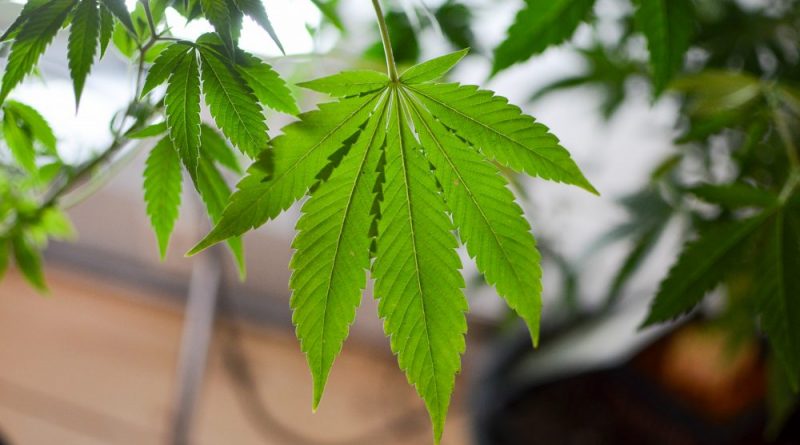House Passes Defense Bill That Omits Provisions To Prevent Marijuana Testing For Military Recruits
From toxifillers.com with love
The U.S. House of Representatives has approved a must-pass defense bill for that omits previously passed provisions to prevent drug testing for marijuana as a condition of enlistment in the military or for commission as an officer.
The House version of the National Defense Authorization Act (NDAA) that passed over the summer contained language to prohibit cannabis testing for recruits, while the Senate conversely proposed a drug testing mandate for prospective enlistees. Neither provision made it into the bicameral agreement that was taken up by the House Rules Committee on Monday and passed on the floor on Wednesday.
In June, the Rules Committee declined to make in order for floor consideration any proposed drug policy amendments such as a measure to prevent security clearance denials based on past marijuana use. However, it kept intact a provision to prevent military branches for testing recruits for cannabis for enlistment or commission that had been added earlier by the House Armed Services Committee.
Marijuana Legalization Linked To Decline In Beer Sales
A recent Canadian study suggests that the legalization of marijuana has led to a decrease in beer sales.
“Canada-wide beer sales fell by 96 hectoliters per 100,000 population immediately after non-medical cannabis legalization and by 4 hectoliters per 100,000 population each month thereafter for an average monthly reduction of 136 hectoliters per 100,000 population post-legalization,” the researchers from University of Manitoba, Memorial University of Newfoundland and University of Toronto found.
The researchers speculate that a substitution effect may be occurring, with consumers increasingly choosing marijuana over beer.
Interestingly, the trend did not extend to sales of spirits.
When broken down by beer type, the study found declines in sales of canned and kegged beer but no reduction in sales of bottled beer.
“One possible explanation is that cans may be preferred to bottle in the context of individual consumption at home due to the increasing popularity and availability of cans as well as the better taste and drinking experience that they offer,” the study says.
Additionally, recent data shows that Canada generated more excise tax revenue from marijuana than wine and beer combined in the 2022-23 fiscal year.
Similarly, in several legal jurisdictions in the United States, cannabis sales have outpaced alcohol sales.
A multinational investment bank noted in a recent report that marijuana has become a significant competitor to alcohol.
It also says marijuana sales are estimated to reach $37 billion in 2027 in the U.S. as more state markets come online.
0 seconds of 1 minute, 27 secondsVolume 0%
The language that was included in the House NDAA bill read:
SEC. 531 PROHIBITION ON CANNABIS TESTING FOR ENLISTMENT OR COMMISSION IN CERTAIN ARMED FORCES.
Subject to subsection (a) of section 504 of chapter 31 of title 10, United States Code, the Secretary of the military department concerned may not require an individual to submit to a test for cannabis as a condition of enlistment of such individual as a member, or the commission of such individual as an officer, of an Armed Force.
The Senate version of NDAA separately included a provision to require the Department of Defense to “ensure that all prospective recruits and officer candidates undergo testing for controlled substances prior to enlistment or appointment as an officer in the Armed Forces,” a joint explanatory statement says.
“The agreement does not include either provision,” it says. And no members sought to add the reform back in as an amendment to the underlying bill ahead of Wednesday’s vote. The legislation now heads to the Senate for a vote, after which point it will be sent to President Joe Biden to be signed into law if no further changes are made in that chamber.
The section mirrored a proposed amendment to DOD appropriations legislation last year that was led by then-Rep. Matt Gaetz (R-FL), who has since retired from Congress before withdrawing from his prospective nomination to run the Justice Department as attorney general under President-elect Donald Trump.
Ahead of the earlier House Rules Committee markup on NDAA this summer, the White House Office of Management and Budget (OMB) put out a statement of administration policy that opposed the marijuana testing language, asserting that cannabis use is a “military readiness and safety concern.”
DOD told lawmakers last year that marijuana’s active ingredient delta-9 THC is the most common substance that appears on positive drug tests for active duty military service members. And several military branches have taken steps to loosen cannabis-related restrictions, including issuing waivers for recruits who test positive their first time.
Meanwhile, the House legislation also included report language to follow up on provisions in the most recently enacted NDAA that provides funding for DOD-led clinical trials on the therapeutic potential of psychedelics for active duty military service members.
The report language says the committee “wants to ensure the establishment of the program is progressing without impediment,” and calls on DOD to provide Congress with a status update report by January 31, 2025.
Photo courtesy of Philip Steffan.


